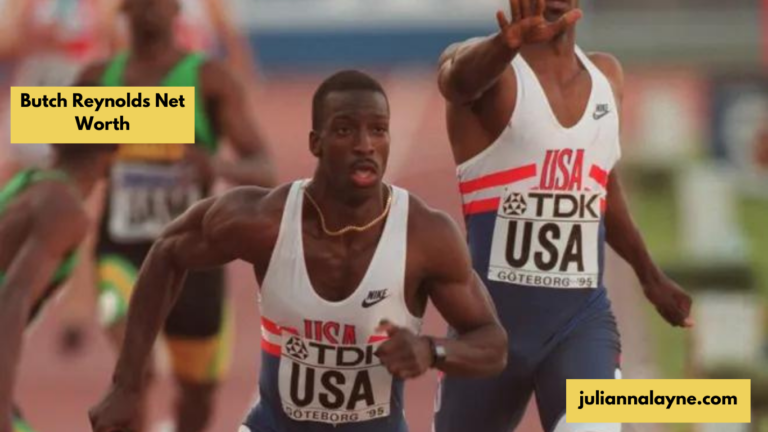In 1988, Harry “Butch” Reynolds, then aged 24 and now estimated to have a net worth of $1 million, stood at the pinnacle of track and field. His remarkable 43.29-second 400-meter run shattered a two-decade-old world record, establishing him as one of the fastest men in the world. Reynolds’ triumph continued with a gold medal in the 4 x 400 relay at the Seoul Olympics, cementing his status as an American track star. However, his illustrious career faced a dramatic and unjust halt due to doping allegations that surfaced two years later. Despite his unwavering efforts to clear his name, Reynolds’ journey for justice has spanned over three decades.
A Champion’s Rise And Fall
Butch Reynolds, hailing from Akron, Ohio, showcased his athletic prowess from an early age, excelling in basketball and football before dedicating himself to track and field. His dedication and talent culminated in a world record few anticipated, marking a high point in his career. However, the euphoria was short-lived. In 1990, Reynolds tested positive for steroids, a result that shocked the sporting community and tarnished his reputation. Despite subsequent investigations revealing significant lab errors, the damage was done, and Reynolds found his career abruptly derailed.
The Battle Against Injustice
The documentary “False Positive,” part of ESPN’s acclaimed “30 for 30” series, delves deep into Reynolds’ fight to restore his name. The film presents compelling evidence suggesting that the positive test was not his, pointing to technician errors that mistakenly assigned another athlete’s test results to Reynolds. Despite legal victories, including affirmation of his eligibility by the U.S. Supreme Court, the International Amateur Athletic Federation (IAAF) maintained its ban, preventing Reynolds from competing in the 1992 Barcelona Olympics and branding him as a cheater.
The Making of “False Positive”
Director Ismail Al-Amin spent over a decade crafting Reynolds’ story into a feature-length documentary. Al-Amin, inspired by Reynolds’ work with the Butch Reynolds Care for Kids Foundation, was determined to shed light on the athlete’s true story. Through meticulous research and collaboration with experts like Bradford Young and Jonathan Hock, Al-Amin brought to life a narrative that had long been misunderstood.
Uncovering Racial Inequities in Sports
“False Positive” also explores the broader context of racial inequities in sports. Al-Amin draws parallels with the historic achievements of Jesse Owens and highlights how Reynolds’ battle for justice has paved the way for future generations of athletes to use their voices for change. The film underscores the systemic injustices faced by Black athletes and Reynolds’ resilience in the face of adversity.
Finding Strength And Redemption
Reynolds’ journey for redemption has been fueled by the strength he found in his family’s history and the legacy of civil rights leaders like Nelson Mandela. His family’s roots in Selma, Alabama, a cornerstone of the Civil Rights Movement, provided him with a profound sense of purpose. Despite the challenges, Reynolds has made significant contributions off the track, particularly through his foundation, which supports inner-city youth in Akron.
Achievements Beyond The Track
In 2016, Butch Reynolds was inducted into the U.S. Track & Field Hall of Fame, a testament to his enduring legacy in the sport. He has also found success in providing speed training for athletes, including the Ohio State football team under coach Jim Tressel. These accomplishments, however, do not overshadow his relentless pursuit of clearing his name fully.
A Legacy of Persistence
Reynolds’ story is one of perseverance and unyielding determination. Despite the injustice he faced, he continues to fight for his reputation and the legacy he shares with his father and grandfather. “I’m going to keep fighting as long as this breath is in my body,” Reynolds asserts, embodying the spirit of resilience that has defined his life’s journey.
Conclusion
Harry “Butch” Reynolds’ quest for redemption is a powerful narrative of triumph, injustice, and unwavering determination. Through the documentary “False Positive,” his story is finally given the clarity and recognition it deserves. Reynolds’ legacy extends beyond his athletic achievements, highlighting the broader struggles against systemic inequities in sports. As he continues his fight, Reynolds remains an inspiring figure, demonstrating that true victory lies in the pursuit of justice and truth.
